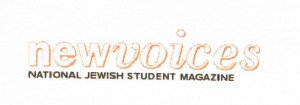 February 01, 2006 | Cara Bowen-Goldberg
February 01, 2006 | Cara Bowen-Goldberg
Tuesday night. It is July in Jerusalem. On Bezalel Street, at one of the long tables in the Gerard Behar Library, my opponent and I are deep in thought. Alice lays her tiles, hits the clock and announces her score: “28, for 173.” I record her score in a hurry, then eagerly make my play: “P-L-U-N-G-E-R-S” across the triple-word score. A 50-point bonus for using all my tiles brings me to 108 points from the turn, giving me a comfortable lead. I select seven more tiles.
“Hey, nice rack!” an older man calls from behind me. Smiling sheepishly, I turn to acknowledge David, my eyes drawn to the knitted skullcap hovering precariously on his head. The Jerusalem Scrabble Club is one of few places a religious man will tell a young woman that he admires her rack, it’s her rack of Scrabble tiles, that is.
Alice, David and I are among over 50 Scrabble players in the library that hosts the Jerusalem Scrabble Club. Out of about 1000 Scrabble clubs across the globe, the Jerusalem club is the world’s largest. It is now named after the late Sam Orbaum, an American immigrant and former columnist with The Jerusalem Post, who established the club in 1983. Since then, both native and non-native English speakers have gathered to play in Jerusalem. Despite the political turmoil that has plagued Jerusalem for decades, it is nearly impossible to deter the club from meeting. During the Gulf War, they even disregarded curfews to get their fix, playing in gas masks.
Other quirky Jerusalem Scrabble Club trivia listed on the website reveals the distinct Jewish character of the world’s largest scrabble club. According to the site, there are 42 members named David, 31 named Ruth, and 22 with the last name of Cohen. Number of players named John Smith: one.
As an Israeli public space, the club is a rarity: Scrabble players are asked to leave their politics at the door. The summer of the Gaza disengagement was a doubly-hot time in the Holy City; in the humid air, my hair stuck to the back of my neck like the political decals stuck to almost every surface in Jerusalem. But no ribbons, orange or blue, were allowed in the library on Bezalel Street, and so I found each week doubly-refreshing: no ribbons, but plenty of AC.
You see, in Scrabble, even in Israel and even in Jerusalem, orange and blue have a very different meaning: triple-word score and triple-letter score. Nothing more. After all, the Jerusalem Club is nothing more than a close-knit bunch whose love for words matters most. The words Sephardi and Ashkenazi, for instance, which characterize a primary ethnic rift in Israeli society, have no place in Scrabble — literally. They are, as we say in Scrabble, unacceptable plays.